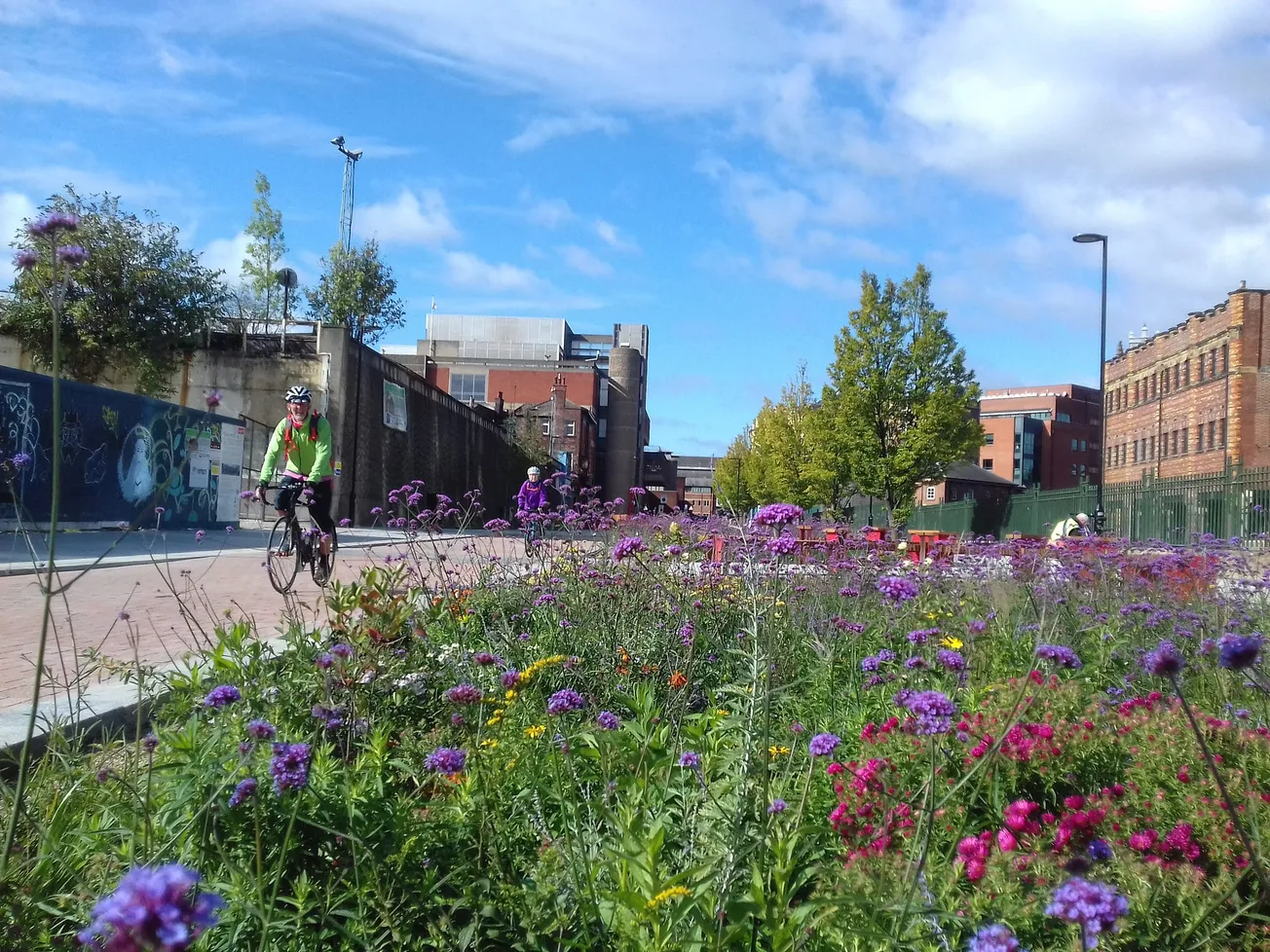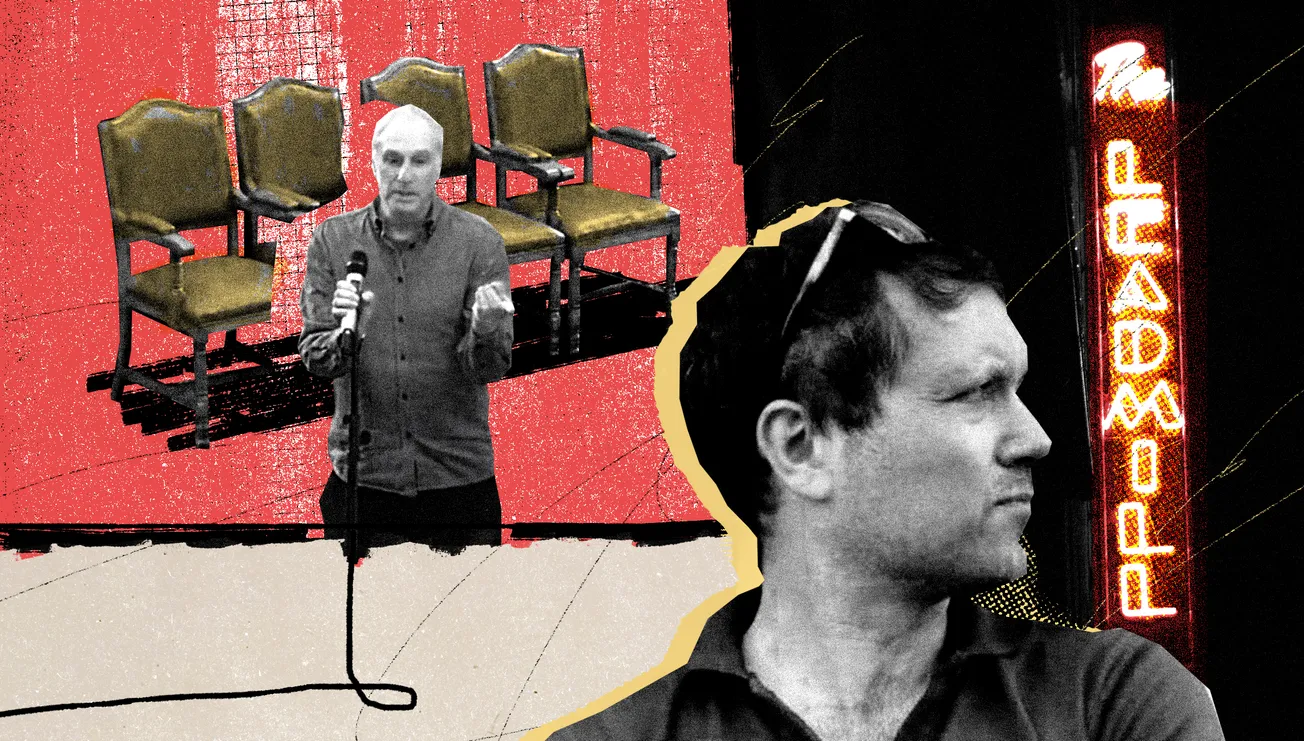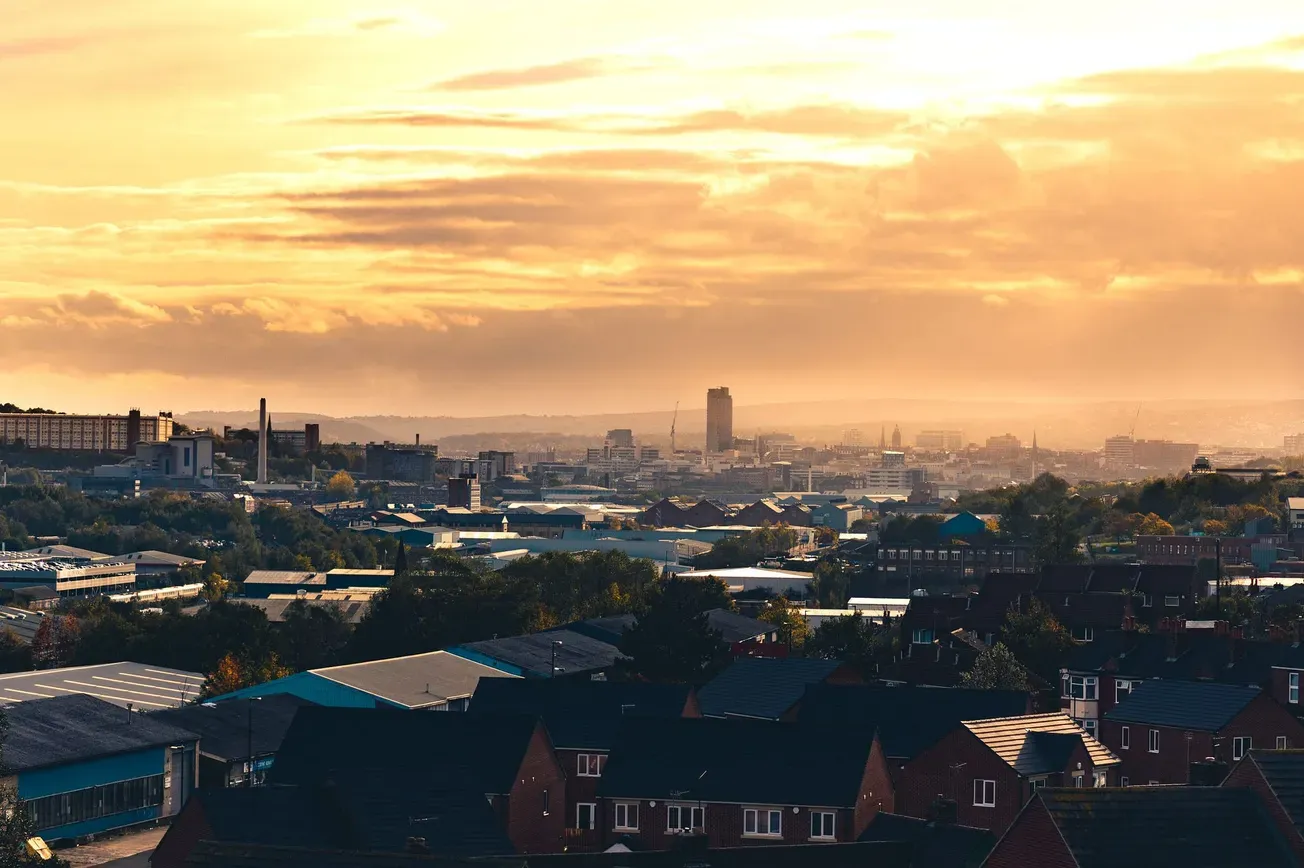Good morning members — and welcome to Thursday’s Tribune.
How do you create places that people want to spend time in? That deceptively simple question is currently the Holy Grail of urban planning and has even spawned its own buzzword — placemaking. The Tribune has looked at some of these issues before in our pieces on cycling and low traffic neighbourhoods. But placemaking is ultimately what all those schemes are about — creating neighbourhoods that are more people-focused and liveable. David Bocking took a tour around some of the projects currently being developed in Sheffield and spoke to two of the people currently responsible for making places in the city.
Editor’s note: This edition of The Tribune is written for our members but non-members are also being sent the first part of the email. The Tribune is entirely funded by our members and we still need many more subscriptions to become a news source that can serve Sheffield for years to come. Join us as a paid member today to get the full story below and all our members-only journalism.
News round-up
🏥 An absolutely shocking story from The Star about a terminally-ill cancer patient who was forced to sleep on chairs in an isolation room for 14 hours after going into hospital. Jade Brown, from Harthill, attended A&E at Rotherham General Hospital last month on the recommendation of her cancer nurse. But when she arrived, Jade was left in the isolation room, with nothing to drink, and was eventually sent home having received no treatment.
🏰 More details of the council’s plans for the former castle site in Castlegate have been revealed. The plans (see image below) would see the site transformed with new “grey to green” type planting, footpaths, a community events space and a de-culverted River Sheaf. However, heritage campaigners have already expressed concerns that the castle remains are not prominent enough. A consultation on the plans will begin on Monday, 7 November.
🗞️ We like to think that all our recommendations are good, but this one is an absolute must read. Tom Clark, a contributing editor at Prospect magazine, visited Sheffield to look at the city’s chronic productivity problem. In the piece he speaks to a wide range of city luminaries including James O’Hara from Public and Dino Sofos from podcast producer Persephonica. There’s also an accompanying podcast presented by ex-Guardian editor Alan Rusbridger.

Things to do
🎸 On Friday, 4 November at Delicious Clam on Exchange Street, “bilingual dreamweavers” Sister Wives launch their new album Y Gawres. According to website Our Favourite Places, the Sheffield-based but Welsh-born band “play a brand of psychedelic rock that’s intense, hypnotic, and often unnerving”. Support comes from Hang Linton, Tristwch y Fenywod and R. Loomes and there is also an afterparty with DJs. Doors open at 7.30pm and tickets are £8.
🎇 From Friday, 4 to Sunday, 6 November Illuminate the Gardens returns to Sheffield Botanical Gardens. With more than 10 illuminated installations, walkabout performances, two fireworks displays and a lighting show, the popular event is always a magical night out for the whole family. There’s also street food, a licensed bar, free kids activities and vintage fairground rides. Tickets are £17.50 for adults, £12.50 for children and free for the under 5s.
🎤 On Sunday, 6 November, the New Barrack Tavern in Hillsborough hosts its monthly comedy night. The popular evening has now been running at the Penistone Road real ale pub for the last 13 years — but still has the feel of a well-kept secret. Headlining this Sunday is Mancunian comic Vince Atta, who won the City Life Comedian Of The Year in 2006 and has recently supported Jason Manford on tour. The doors open at 6pm for a 7pm start and tickets are priced £6.
As a child, I knew exactly what a city was — I’d seen them depicted in picture books. On the page, a city was a one-way ticket to fun! It was a place where people of every kind intermingled, where theatres jostled up against shopping centres and churches and art galleries. It was a place brimming with colour and variety. There was the odd car, but there were just as many trains and bicycles and people walking by foot depicted. When I grew up, it struck me that the cities I’d seen in children's books weren’t a fantasy: they just skewed closer to the average big European city, like Hamburg or Madrid, than the British version of the same. But closer to home, change is afoot. Sheffield’s city centre is undergoing a minor transformation — one that could bring it closer to the picture book city.
Despite being on the cusp of winter, spring is in the air — things are growing and changing. There are cranes and builders aplenty, and climate-resilient bushes and trees sprouting up next to big stones and benches waiting for you to come and sit with your mates and their flat whites and wonder what’s going on. There’s a surprising number of people strolling about, for one thing. Fewer roads, and lots more flagstones.
Fewer roads, but potentially more people if the city council has anything to do with it. All the new and refurbished buildings taking shape around you are going to result in 50,000 people living in the city centre pretty soon, and many of them won't be students. Low carbon office blocks and bespoke apartments are going up, with the council confident they’ll be filled, despite last year’s idea that we’d all be working at home by now.

There are still shops open, and cafes and bars, and another thing you’ll notice is that we now appear to be building public play spaces instead of car parks. What you’re watching is the fifty-year old idea of ‘placemaking’ happening in real time, in your city. In a nutshell, placemaking is the idea of consciously creating places in which people want to spend time. This sounds intuitive enough — but since most British cities have sprung up organically, over hundreds of years, it isn’t something that you can rely on happening without careful planning.

Comments
Sign in or become a Sheffield Tribune member to leave comments. To add your photo, click here to create a profile on Gravatar.







